
WHEN YOU HEAR THE WORDS ‘career’ and ‘aviation industry’ together, the first reaction is to think ‘pilot’. But aviation is an enormous industry and accordingly has a requirement for an imposing spread of skills.
From the front to the rear of an aircraft and from the ground up to its cruise altitude, there are people, skills and jobs that are the ‘wind beneath the wings’ of the industry. These are the maintenance technicians, ground-handlers, loadmasters, despatchers, meteorologists, check-in, passenger handling, cabin crew, pilots, traffic controllers, administration, caterers – the list is a long one and includes such a wide range of skills that almost anyone can find a suitable aviation career in which to get qualified.
Boeing recently released its Pilot and Technician Outlook, which projected a demand for 850,000 new pilots over the next 20 years. This is double the current workforce and the most significant demand in the Outlook’s twelve-year history.
And it’s not only the ‘pointy end’ that will need more people. Maintenance engineer demand is projected at 650,000, and commercial cabin crew a staggering 900,000 people, mostly due to changes in fleet mix, regulatory requirements, denser seat configurations and multi-cabin configurations that offer more personalised service.
NOT JUST PILOTS
Collectively, the business aviation and civil helicopter sectors will also demand an additional 155,000 pilots, 132,000 technicians and 32,000 new cabin crew to support business aviation.
The demand is being driven by an expected doubling of the global commercial fleet, a recordhigh air travel demand and a tightening labour supply.
This story is from the December 2024 edition of SA Flyer Magazine.
Start your 7-day Magzter GOLD free trial to access thousands of curated premium stories, and 9,000+ magazines and newspapers.
Already a subscriber ? Sign In
This story is from the December 2024 edition of SA Flyer Magazine.
Start your 7-day Magzter GOLD free trial to access thousands of curated premium stories, and 9,000+ magazines and newspapers.
Already a subscriber? Sign In
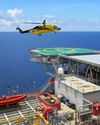
LIVING THE DREAM Part 2: Planning and Pax
Part 2: Planning and Pax
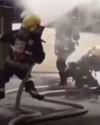
QUEEN AIR TALES
In the early seventies Esquire Airways acquired a pre-owned Beechcraft Queen Air. This top of the range 8,800 lb MAUW model had nine forward facing commuter seats and I flew it as a single pilot operation for several months.
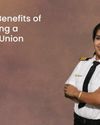
HELICOPTER PILOTS SHOULD UNIONISE
Helicopter pilots are stuck in a 12-month flying cycle. While they will have periods of rest and active rest (performing ground-based tasks and planning ventures) within their work source campaigns, it's not a good situation. They need programmed periods to catch their breath.
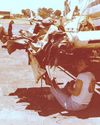
AFTERMATH of the Engine Fire
Iris McCallum continues her stories about her early years with Air Kenya. This month she tells us about the immediate aftermath of her dramatic engine fire and crash, and her subsequent 'getting back onto the saddle'.
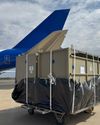
LARGEST EVER RHINO RELOCATION
Specialist air cargo operator ACS mobilised all its skills to successfully complete a very challenging project – the translocation of 39 White Rhino from Namibia to the USA.
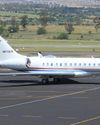
NOVEMBER 2024
November sees strong growth in aircraft registrations with 16 additions, but 10 aircraft are cancelled as exported. The Type Certified additions are a mixed bag.
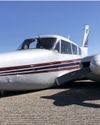
TWINCO FUEL
AIRCRAFT ACCIDENT REPORT
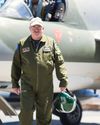
RON WHEELDON'S HUNTERS
RON WHEELDON is a Johannesburg based trademark and IP attorney. He writes, \"My love affair with Hawker Hunter jet fighters started in approximately 1963 when the Rhodesian parliament opening was marked by a fly-by of nine recently acquired Hawker Hunters in diamond formation.
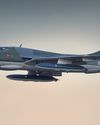
FLYING THE HAWKER HUNTER
Flying a Hunter starts hours before actually walking out to the aircraft. This machine is a legend, but it is first of all about the highest performance machine that it is feasible for a civilian to fly. Flying it is not to be taken lightly.
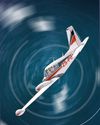
RIGHT SEAT RULES NO. 25 SLOW FLIGHT
Most of us feel a bit edgy when the ASI creeps down within 10 KIAS of the stall. Jim Davis has some hints on how to be comfortable and in control - even when the airspeed is 20 KIAS below the stall.